Charles E W Bean, Diaries, AWM38 3DRL 606/87/1 - August 1917 - Part 1
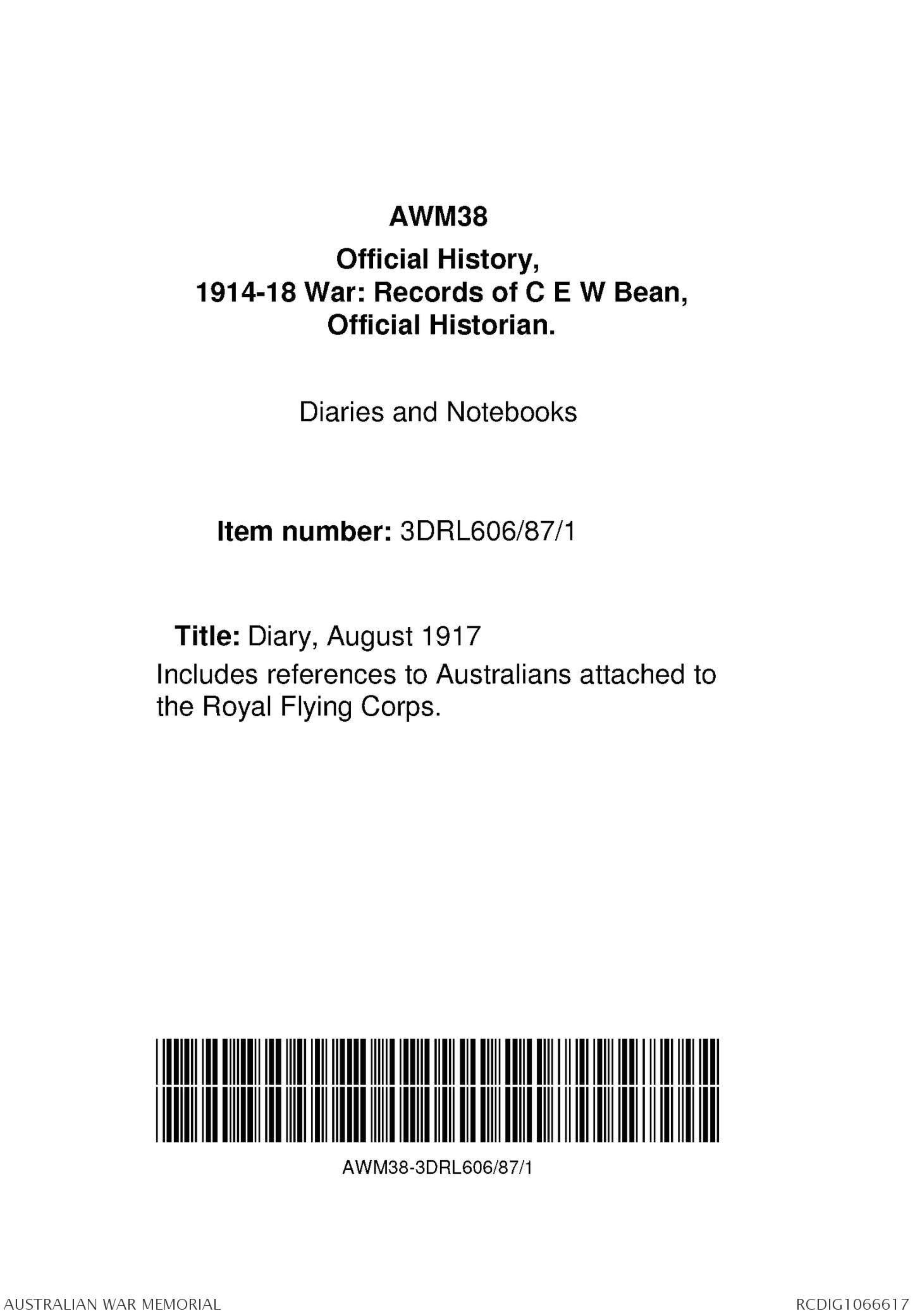
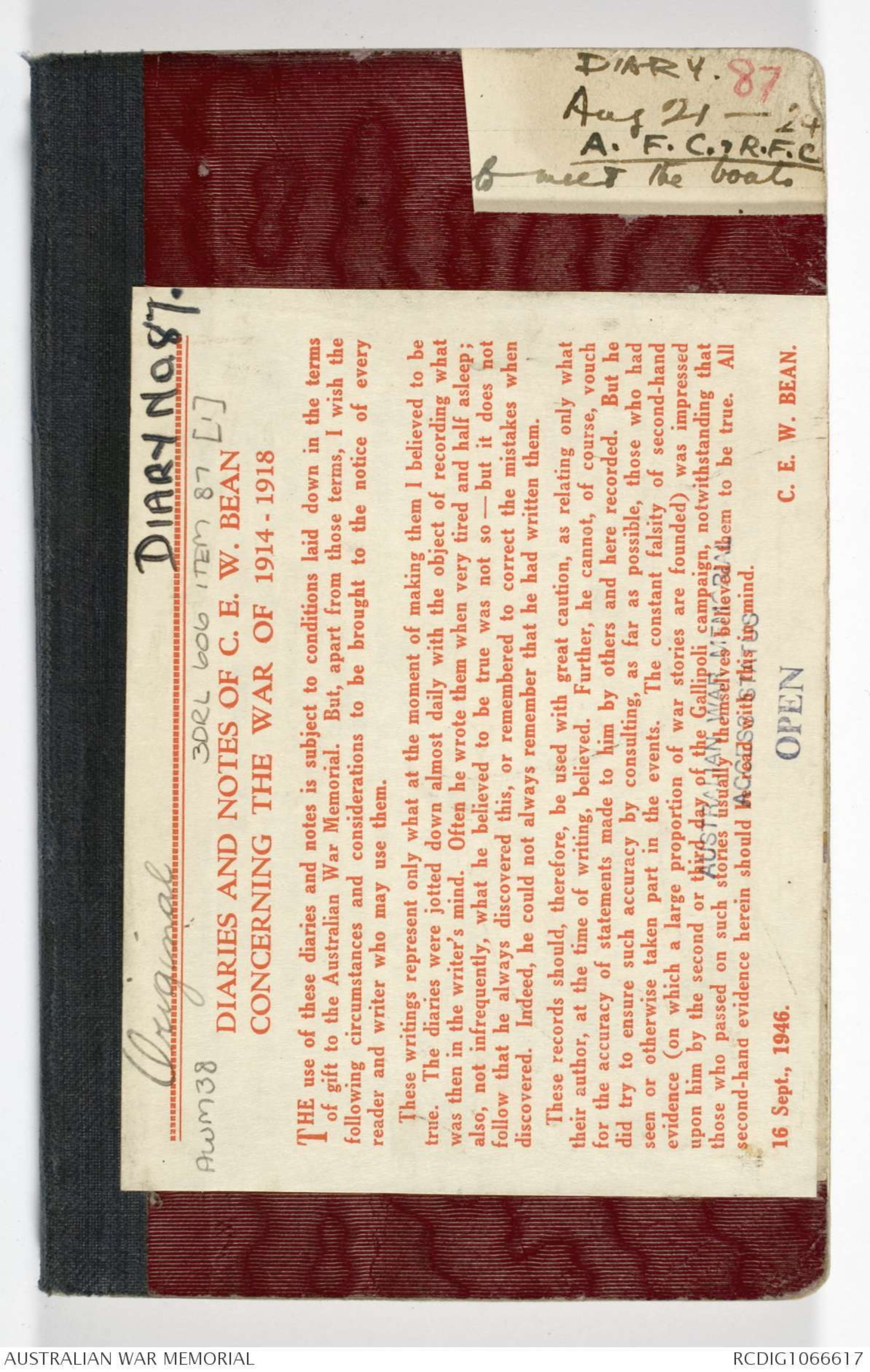
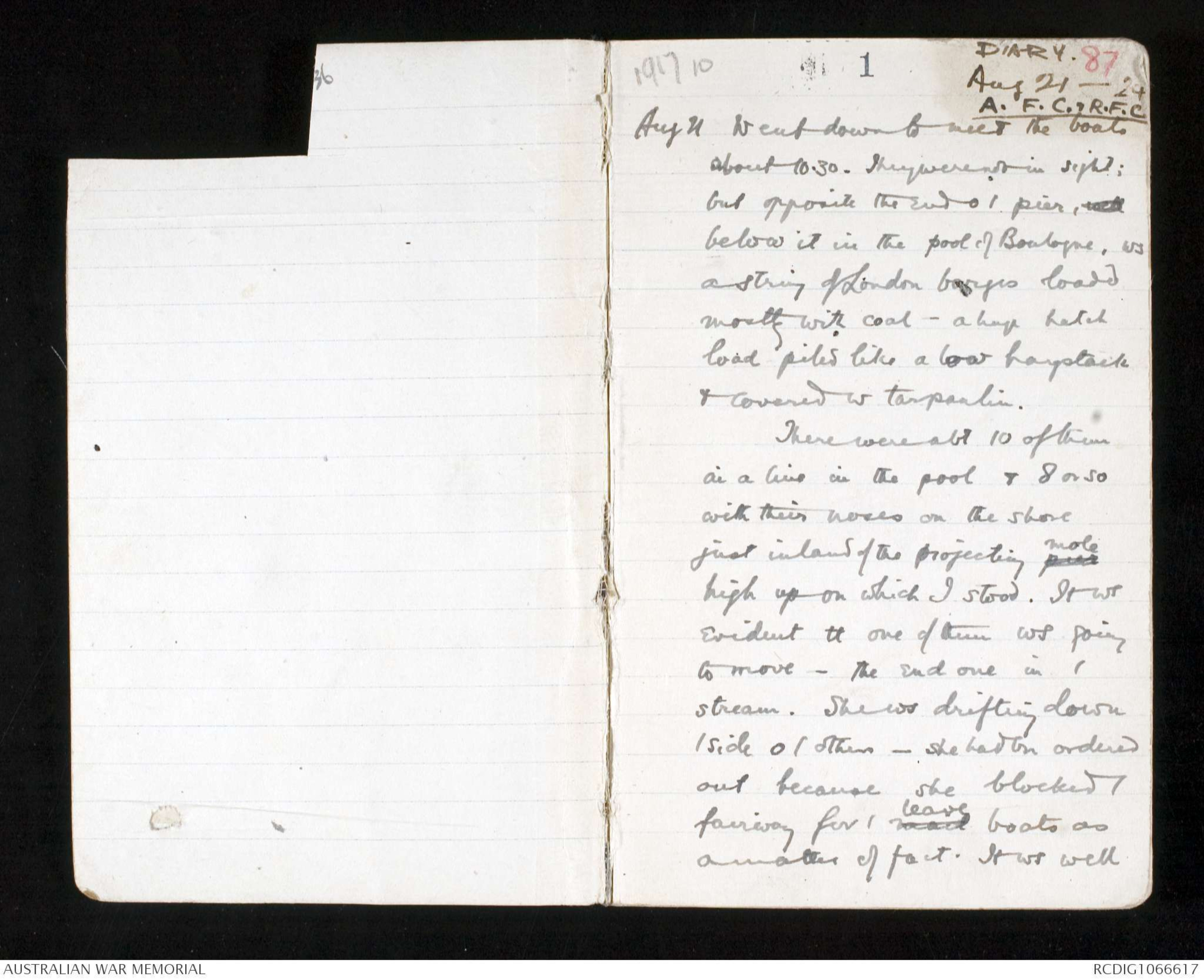
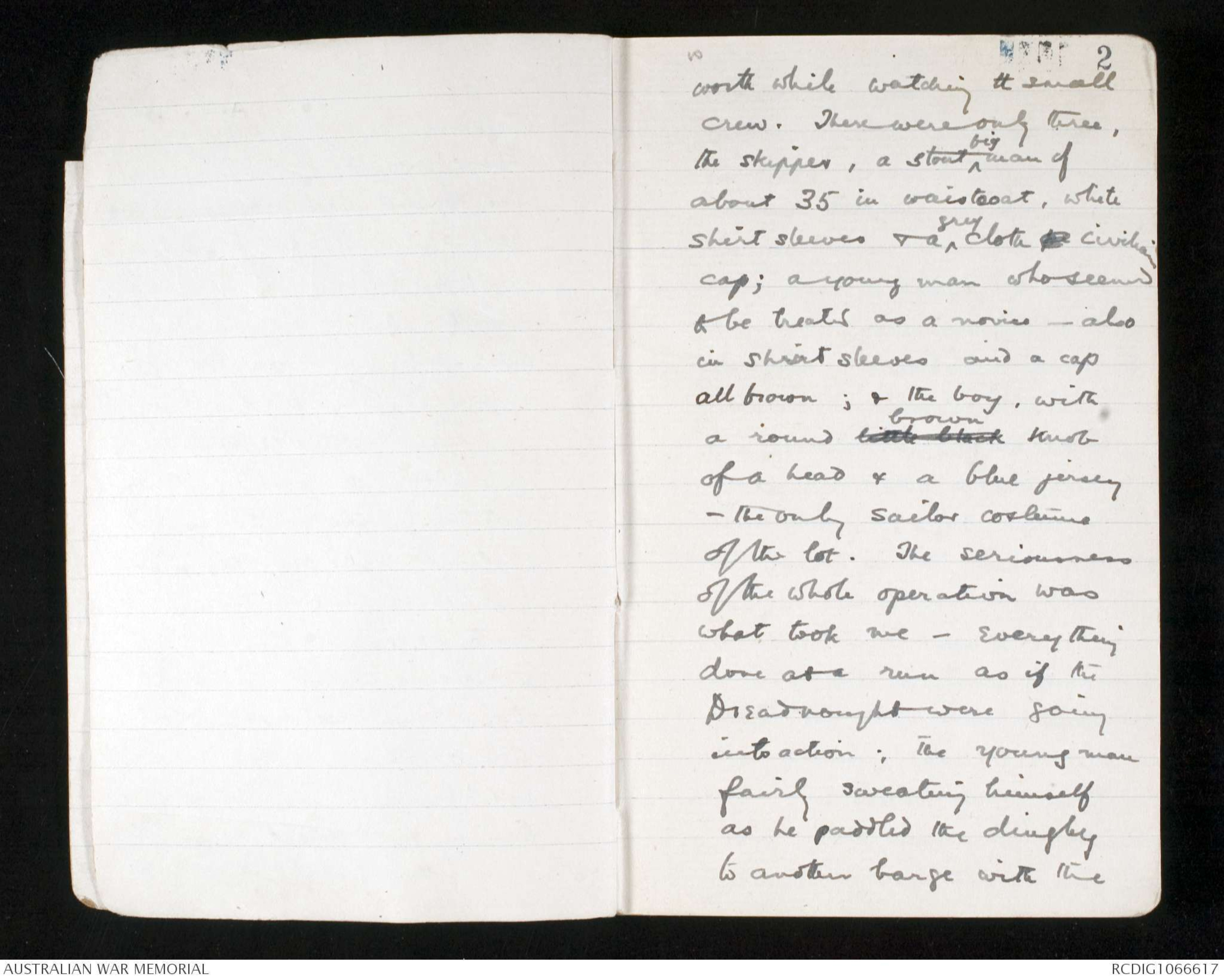
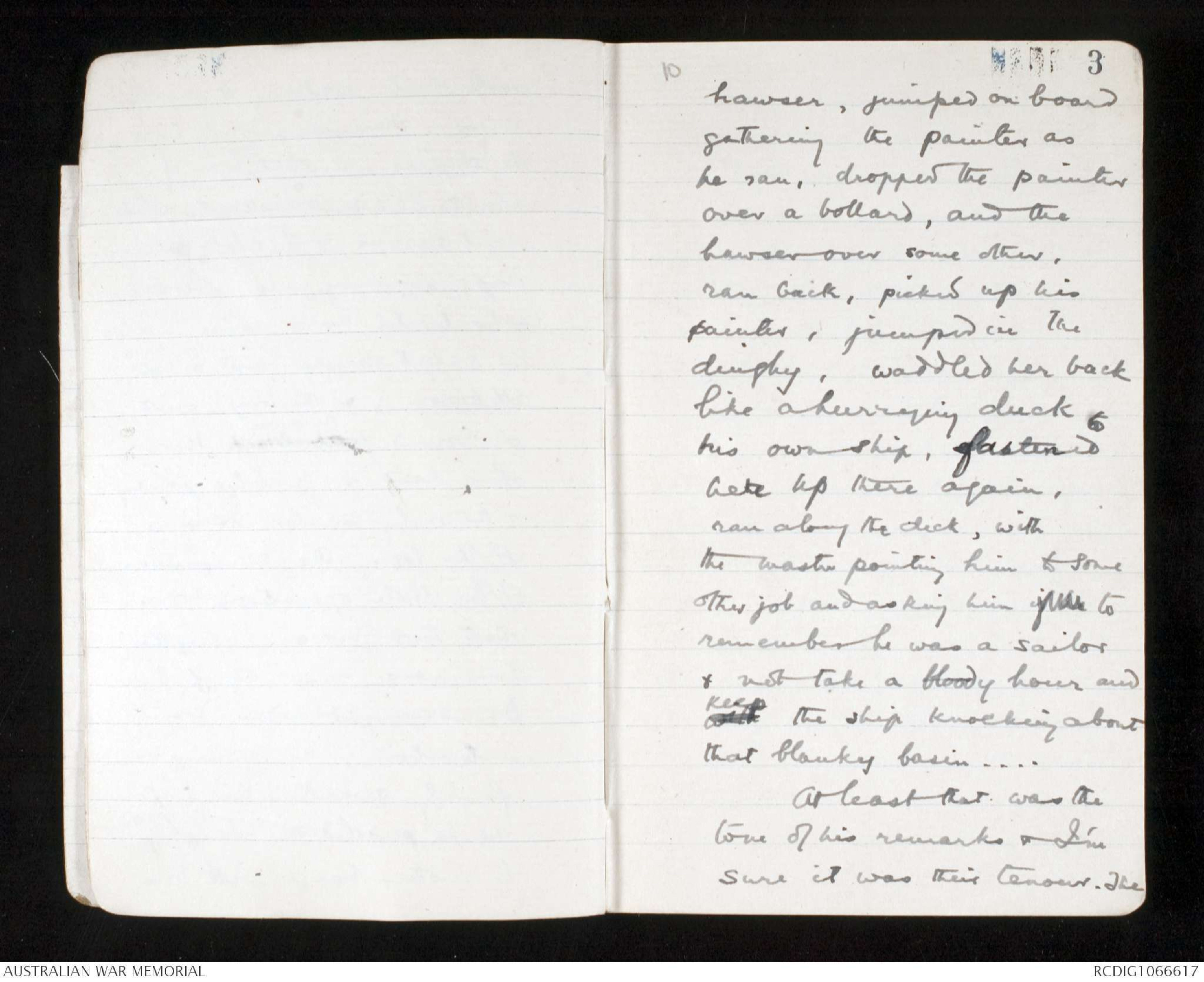
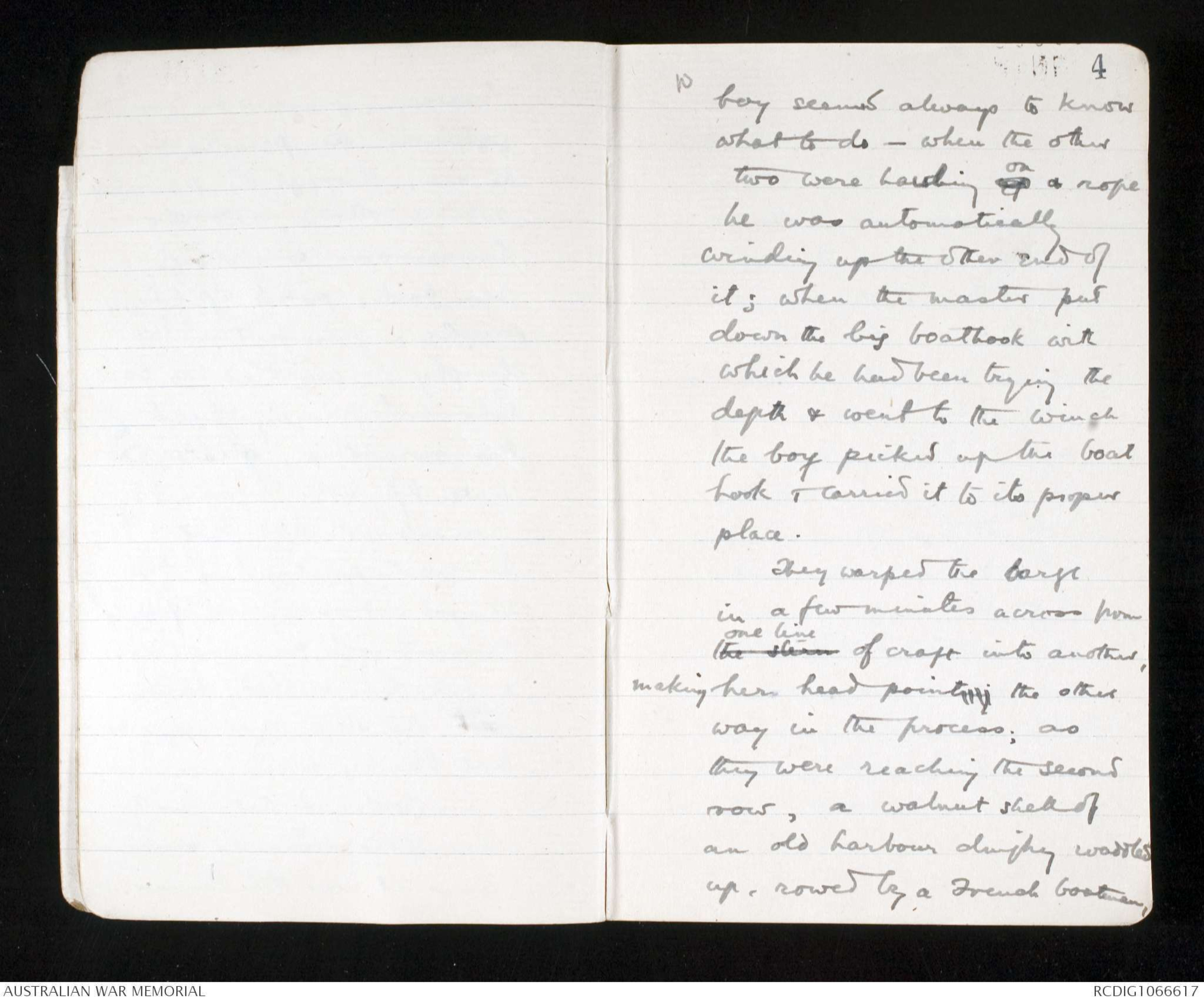
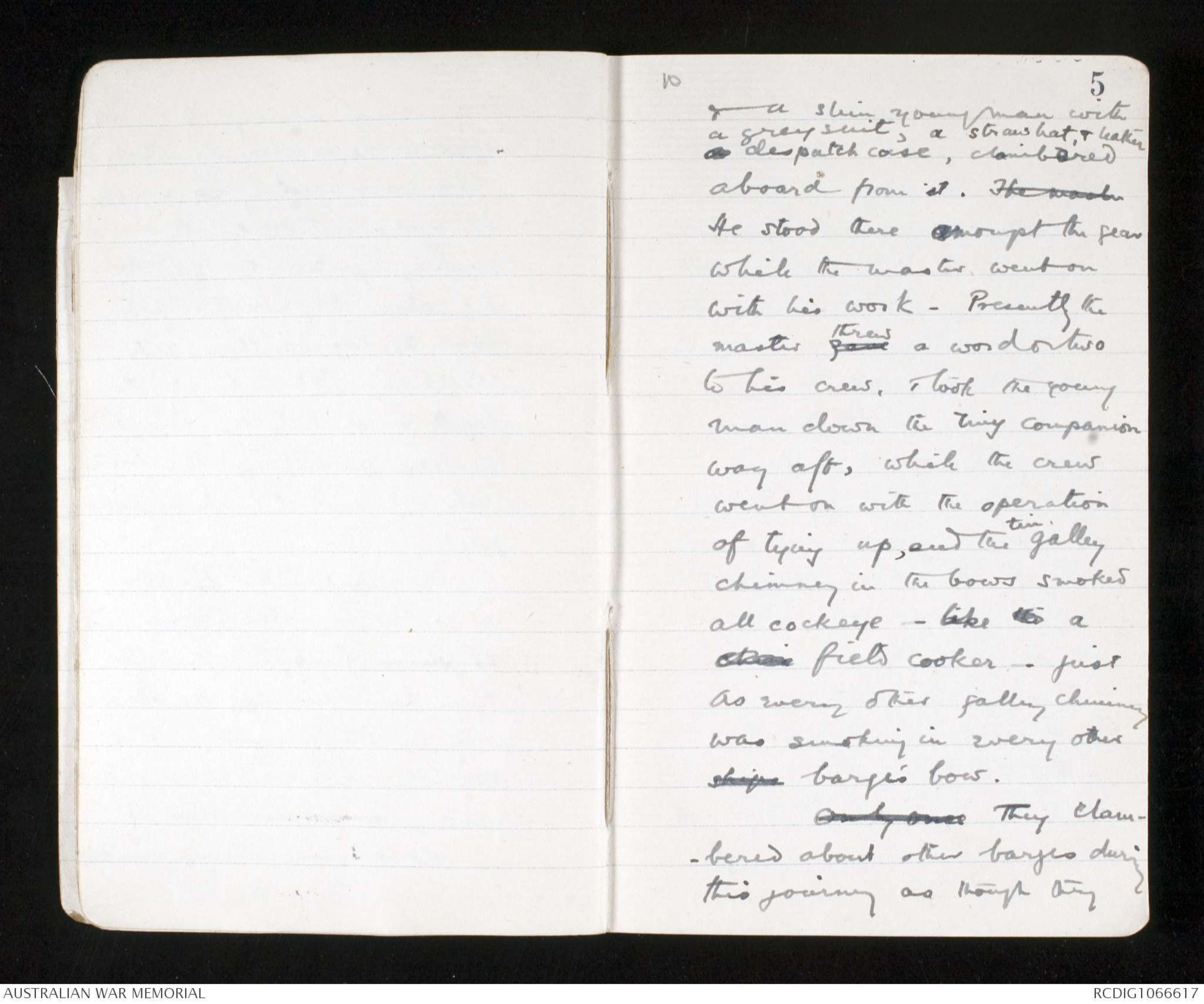
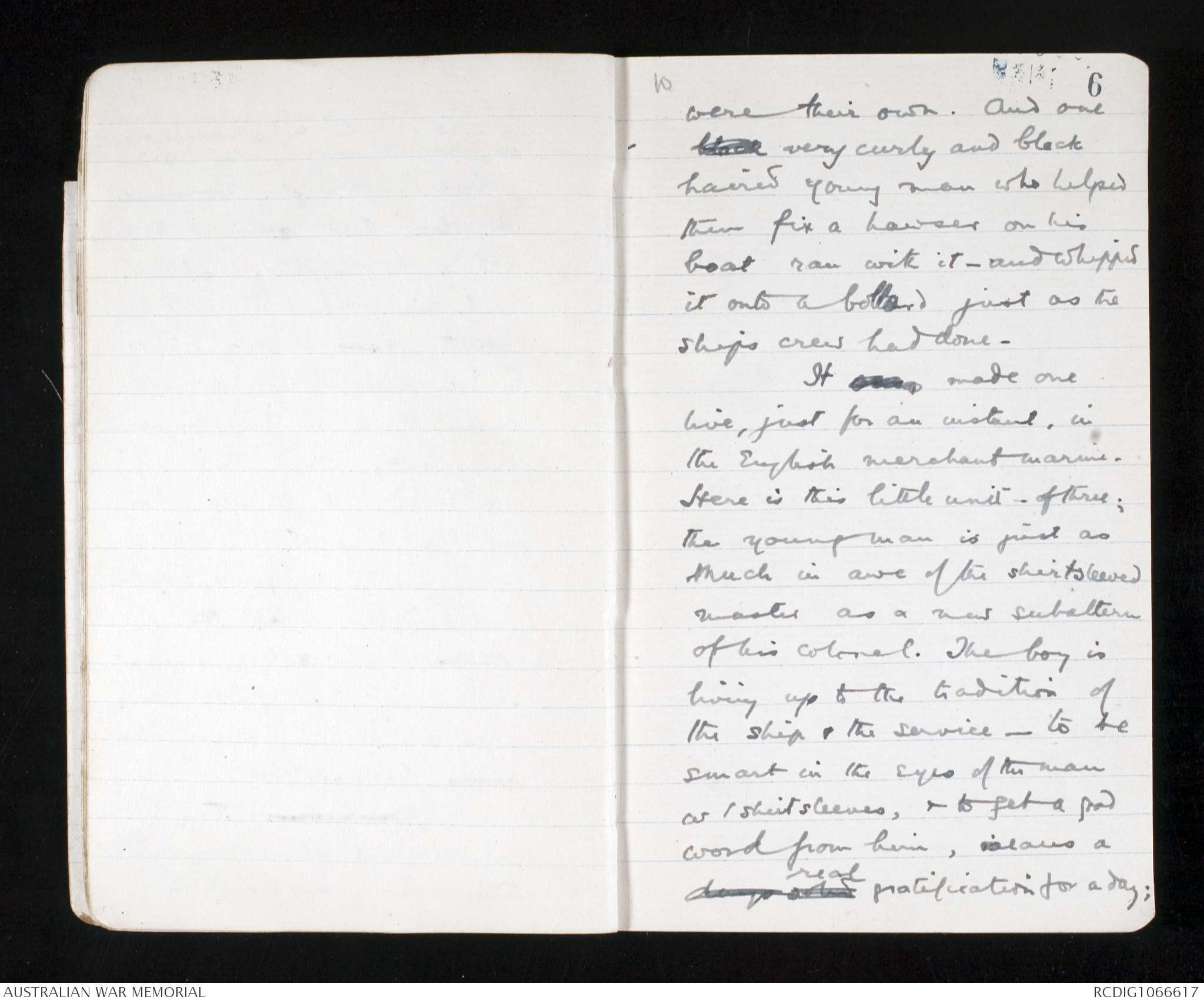
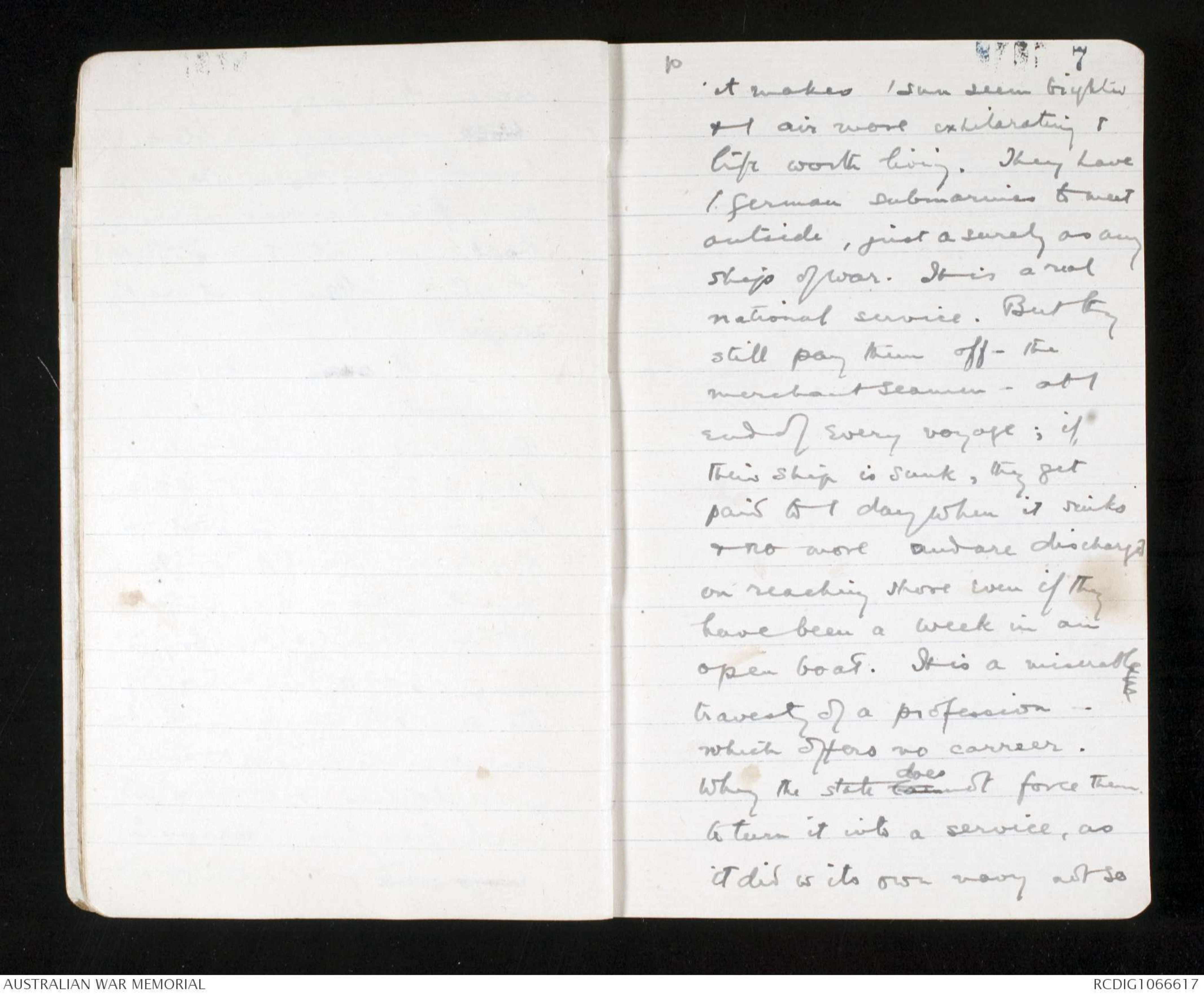
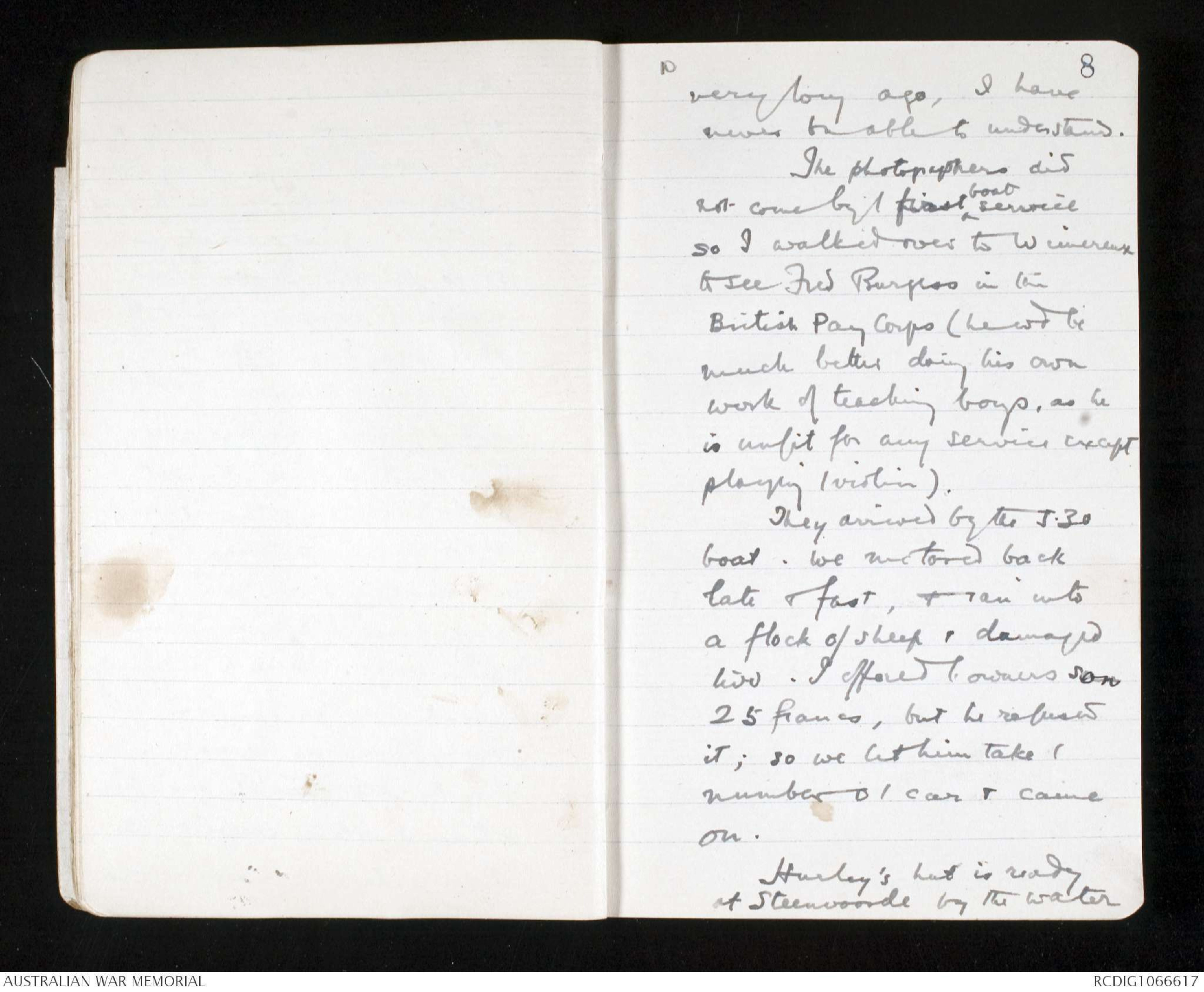
AWM38
Official History,
1914-18 War: Records of C E W Bean,
Official Historian.
Diaries and Notebooks
Item number: 3DRL606/87/1
Title: Diary, August 1917
includes references to Australians attached to
the Royal Flying Corps.
AWM38-3DRL606/87/1
DIARY. 87
Aug 21-24
A.F.C., R.F.C.
to meet the boats
Original DIARY No.87.
AWM38 3DRL 606 ITEM 87 [1]
DIARIES AND NOTES OF C. E. W. BEAN
CONCERNING THE WAR OF 1914 - 1918
THE use of these diaries and notes is subject to conditions laid down in the terms
of gift to the Australian War Memorial. But, apart from those terms, I wish the
following circumstances and considerations to be brought to the notice of every
reader and writer who may use them.
These writings represent only what at the moment of making them I believed to be
true. The diaries were jotted down almost daily with the object of recording what
was then in the writer’s mind. Often he wrote them when very tired and half asleep;
also, not infrequently, what he believed to be true was not so —but it does not
follow that he always discovered this, or remembered to correct the mistakes when
discovered. Indeed, he could not always remember that he had written them.
These records should, therefore, be used with great caution, as relating only what
their author, at the time of writing, believed. Further, he cannot, of course, vouch
for the accuracy of statements made to him by others and here recorded. But he
did try to ensure such accuracy by consulting, as far as possible, those who had
seen or otherwise taken part in the events. The constant falsity of second-hand
evidence (on which a large proportion of war stories are founded) was impressed
upon him by the second, or third day of the Gallipoli campaign, notwithstanding that
those who passed on such stories usually themselves believed them to be true. All
second-hand evidence herein should be read with this in mind.
AUSTRALIAN WAR MEMORIAL
ACCESS STATUS
OPEN
16 Sept, 1946. C.E.W. BEAN
36
1917 10 1
DIARY. 87
Aug 21-24
A.F.C., R.F.C.
Aug 21 Went down to meet the boats
about 10.30. They were not in sight;
but opposite the end o / pier, well
below it in the pool of Boulogne, ws
a string of London barges loaded
mostly with coal - a huge hatch
load piled like a low haystack
& covered w tarpaulin.
There were abt 10 of them
on a line in the pool & 8 or so
with their noses on the shore
just inland of the projecting pier mole
high up on which I stood. It ws
evident tt one of them ws going
to move - the end one in /
stream. She ws drifting down
/ side o / others – she had bn ordered
out because she blocked /
fairway for / mail leave boats as
a matter of fact. It ws well
10 2
worth while watching tt small
crew. There were only three,
the skipper, a stout ^big man of
about 35 in waistcoat, white
shirt sleeves & a ^grey cloth pe civilian
cap; a young man who seemed
to be treated as a novice - also
in shirt sleeves and a cap
all brown; & the boy, with
a round little black brown knob
of a head & a blue jersey
- the only sailor costume
of the lot. The seriousness
of the whole operation was
what took me - everything
done at a run as if the
Dreadnought were going
into action; the young man
fairly sweating himself
as he paddled the dinghy
to another barge with the
10 3
hawser, jumped on board
gathering the painter as
he ran, dropped the painter
over a bollard, and the
hawser over some other,
ran back, picked up his
painter jumped in the
dinghy, waddled her back
like a hurrying duck to
his own ship, fastened
her up there again,
ran along the deck, with
the master pointing him to some
other job and asking him xxxx to
remember he was a sailor
& not take a bloody hour andwith keep the ship knocking about
that blanky basin....
At least that was the
tone of his remarks & I'm
sure it was their tenour. The
10 4
boy seemed always to know
what to do - when the other
two were hauling up on a rope
he was automatically
winding up the other end of
it; when the master put
down the big boathook with
which he had been trying the
depth & went to the winch
the boy picked op the boat
hook & carried it to its proper
place.
They warped the barge
in a few minutes across fromthe stern one line of craft into another,
making her head pointing the other
way in the process; as
they were reaching the second
row, a walnut shell of
an old harbour dinghy waddled
up, rowed by a French boatman,
10 5
& a slim young man with
a grey suit, a straw hat, & leathera despatch case, clambered
aboard from it. The master
He stood there amongst the gear
while the master went on
with his work. Presently the
master gave threw a word or two
to his crew, & took the young
man down the tiny companion
way aft, while the crew
went on with the operation
of tying up, and the tin galley
chimney in the bows smoked
all cockeye - like the achimn field cooker - just
as every other galley chimney
was smoking in every otherships barge’s bow.Only once They clambered
about other barges during
this journey as though they
10 6
were their own. And oneblack very curly and black
haired young man who helped
them fix a hawser on his
boat ran with it - and whipped
it onto a bollard just as the
ships crew had done -
It xxxx made one
live, just for an instant, in
the English merchant marine.
Here is this little unit - of three;
the young man is just as
much in awe of the shirt sleeved
master as a new subaltern
of his colonel. The boy is
living up to the tradition of
the ship & the service - to be
smart in the eyes of the man
w / shirt sleeves, & to get a good
word from him, leaves adays solid real gratification for a day;
10 7
it makes / sun seem brighter
& / air more exhilarating &
life worth living. They have
/ German submarines to meet
outside, just a surely as any
ships of war. It is a real
national service. But they
still pay them off - the
merchant seamen - at /
end of every voyage; if
their ship is sunk, they get
paid to / day when it sinks
& no more and are discharged
on reaching shore even if they
have been a week in an
open boat. It is a miserable
travesty of a profession -
which offers no carreer.
Why the state can does not force them
to turn it into a service, as
it did w its own navy not so
10 8
very long ago, I have
never bn able to understand.
The photographers did
not come by / first ^boat service
so I walked over to Wimereux
to see Fred Burgess in the
British Pay Corps (he wd be
much better doing his own
work of teaching boys, as he
is unfit for any service except
playing / violin).
They arrived by the 5.30
boat. We motored back
late & fast, & ran into
a flock o / sheep & damaged
two. I offered / owners son
25 francs, but he refused
it; so we let him take /
number o / car & came
on.
Hurley's hut is ready
at Steenvoorde by the water
 Deb Parkinson
Deb ParkinsonThis transcription item is now locked to you for editing. To release the lock either Save your changes or Cancel.
This lock will be automatically released after 60 minutes of inactivity.